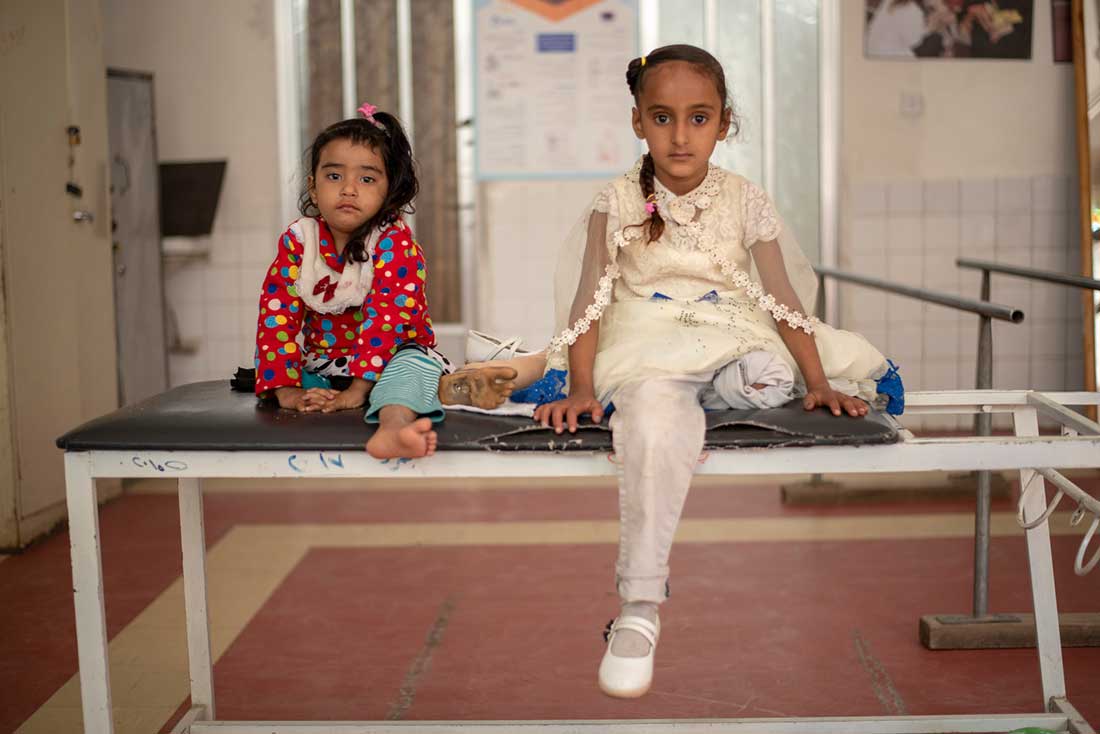Last week, the UK Court of Appeal has ruled that UK arms exports to Saudi Arabia for use in Yemen are unlawful. And in the same week, the UN Security Council unanimously adopted a Resolution on persons with disabilities in armed conflict, recognizing that all parties to conflict have the responsibility to protect all civilians, including persons with disabilities, from the effects of war. These landmark events bring us one step closer to protecting civilians caught in armed conflict.
The Yemen case, brought by the Campaign Against Arms Trade, found that the UK failed to adequately assess whether UK exports might be used to breach international humanitarian law in Yemen and are therefore unlawful. The ruling also found that it was unlawful for the UK to dismiss a wide range of credible evidence provided by UN bodies and human rights organizations.
This ruling is not only a victory for the Yemeni people, it is also a victory for us as citizens to realize again, that, when a group of campaigners get together and advocate tirelessly, we can make a change in the world.
The Yemen conflict is one of the biggest humanitarian crises in the world, with at least 80% of the country’s population affected. The international coalition led by Saudi Arabia has launched more than 18,000 air attacks since March 2015. One third of strikes hit civilian targets including markets, homes and hospitals.
As a humanitarian who has worked in conflict situation, I have seen first-hand the horrific impact explosive weapons can have on innocent civilians. Every day our teams in Yemen meet people who were at home, in the street or visiting friends when they were seriously injured in bomb attacks. Some have lost one or more relatives. Some of these people live with disabilities, many of these people will become due to these attacks.

Two young patients from the Sana'a Rehabilitation Center: on the right, Erada, 7, and on the left her cousin Hala, 4. | © ISNA Agency / HI
People like 7 year old Erada (pictured above). Last September, she was playing with her relatives when the family heard airstrikes near their home. Suddenly, there was a loud noise. Erada and her cousin Halla,4, were injured in the strike. The little girls somehow survived but at the hospital the doctors had to make a heart-breaking decision: both would need amputations to save their lives. When our team first visited the little girls, they were not able to get out of bed. Erada was hopeless, sad and frustrated, fearful of people, especially other children. She couldn’t understand where her leg had gone. Our rehabilitation specialists have been working with Erada and Halla to build their physical strength so they can be fitted with artificial limbs and walk again.
Sadly Erada and Halla’s tragic story is shared by thousands of children living in Yemen.
I deeply admire the campaigners who never stop believing that there is still hope and that we can all do something against the suffering of the Yemeni population.
Working for an organization like Humanity & Inclusion, I know how much effort is needed to make things change and I also know the difference that ordinary people’s voices can make. For the past 30 years, we have gathered people together to campaign against anti-personnel mines and cluster bombs which led to the signing of the Ottawa mine ban convention (1997) and the Oslo convention on cluster munitions (2008). Today, we encourage everyone to join us in our fight to Stop Bombing Civilians. We won’t give up until civilians are no longer the target of horrific weapons.
This new ruling on Yemen and the UN Security Council resolution should remind everyone of the appalling impact explosive weapons have on civilians - when explosive weapons are used in populated areas a shocking 92% of all victims are civilians.
And now that the UK Court of Appeal has ruled that UK arms sales to Saudi Arabia for use in Yemen are unlawful, it is time to put pressure on our government not only to stop these sales once and for all but also to publicly commit to ending the use of explosive weapons with wide-area effects in populated areas, and to recognize the suffering of civilians. Please, join us in our campaign to Stop Bombing Civilians.
Aleema Shivji, Executive Director, Humanity & Inclusion UK




